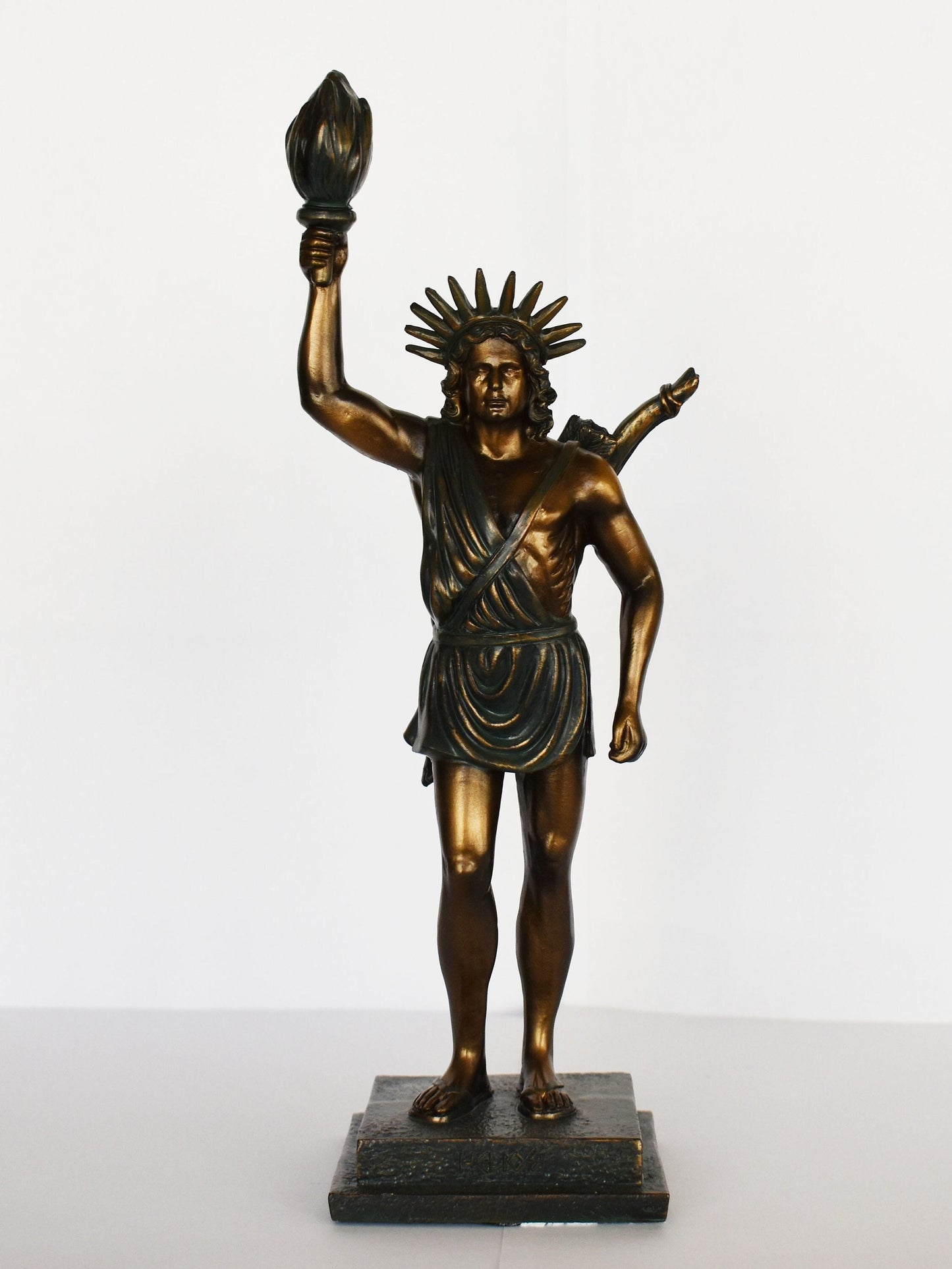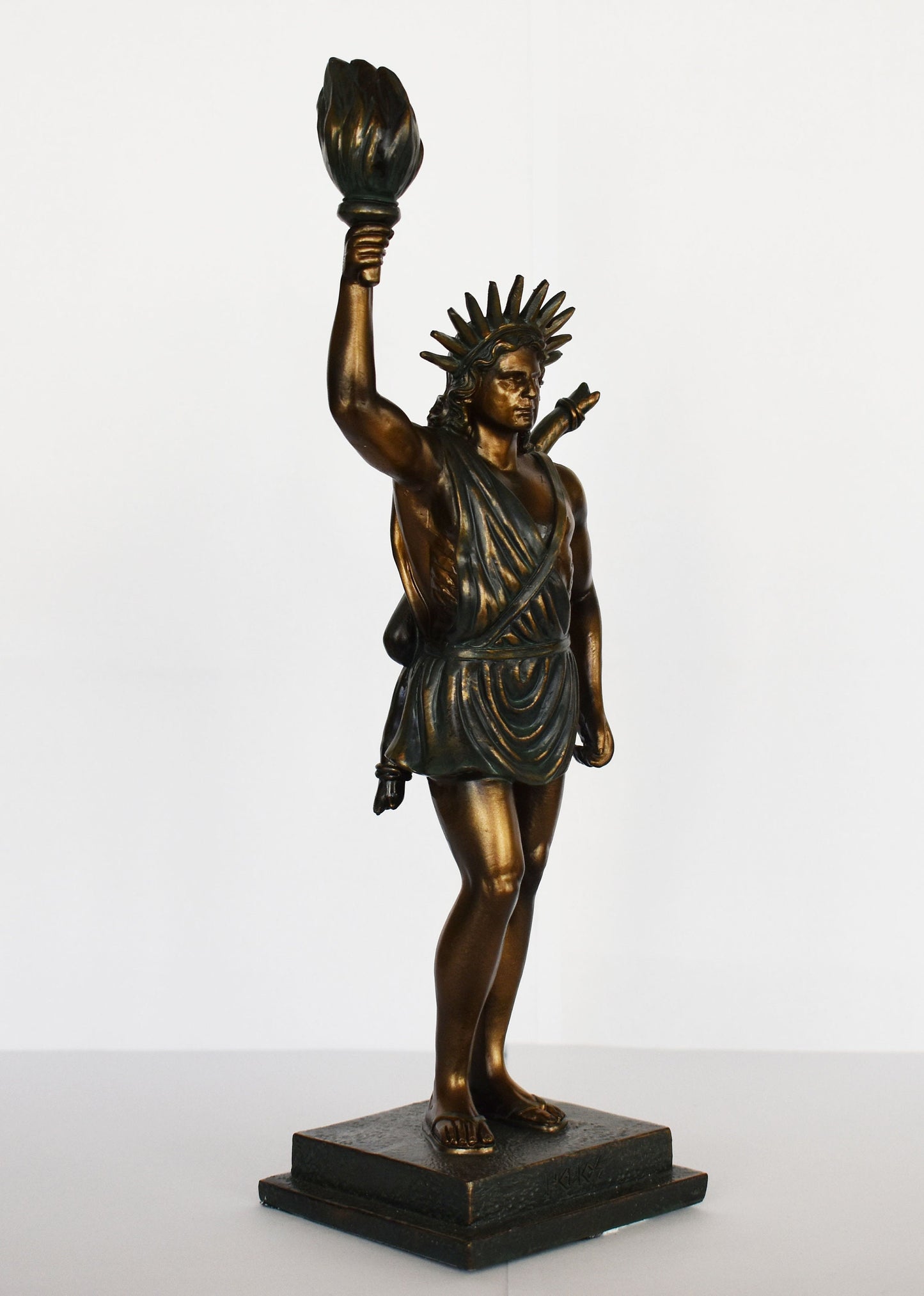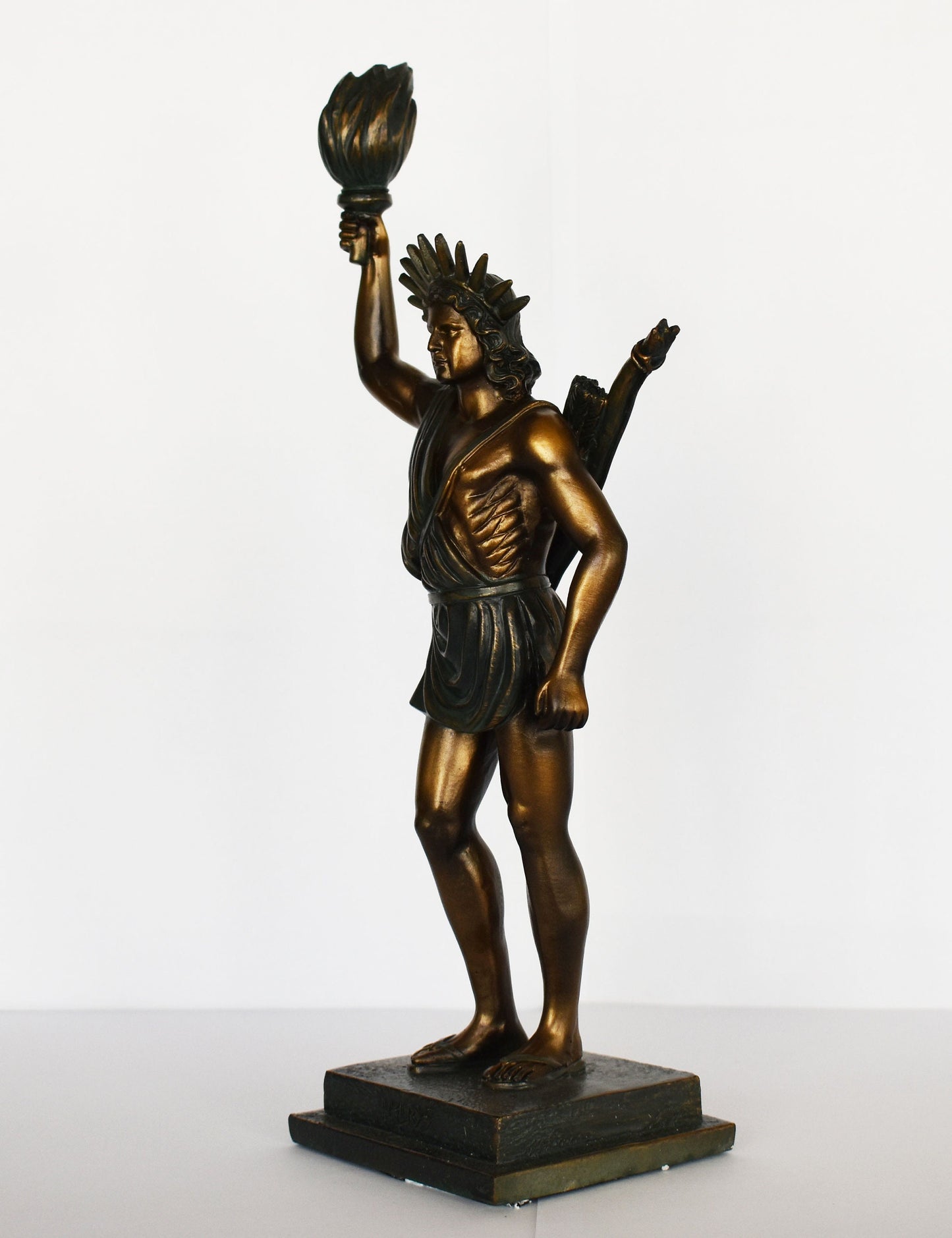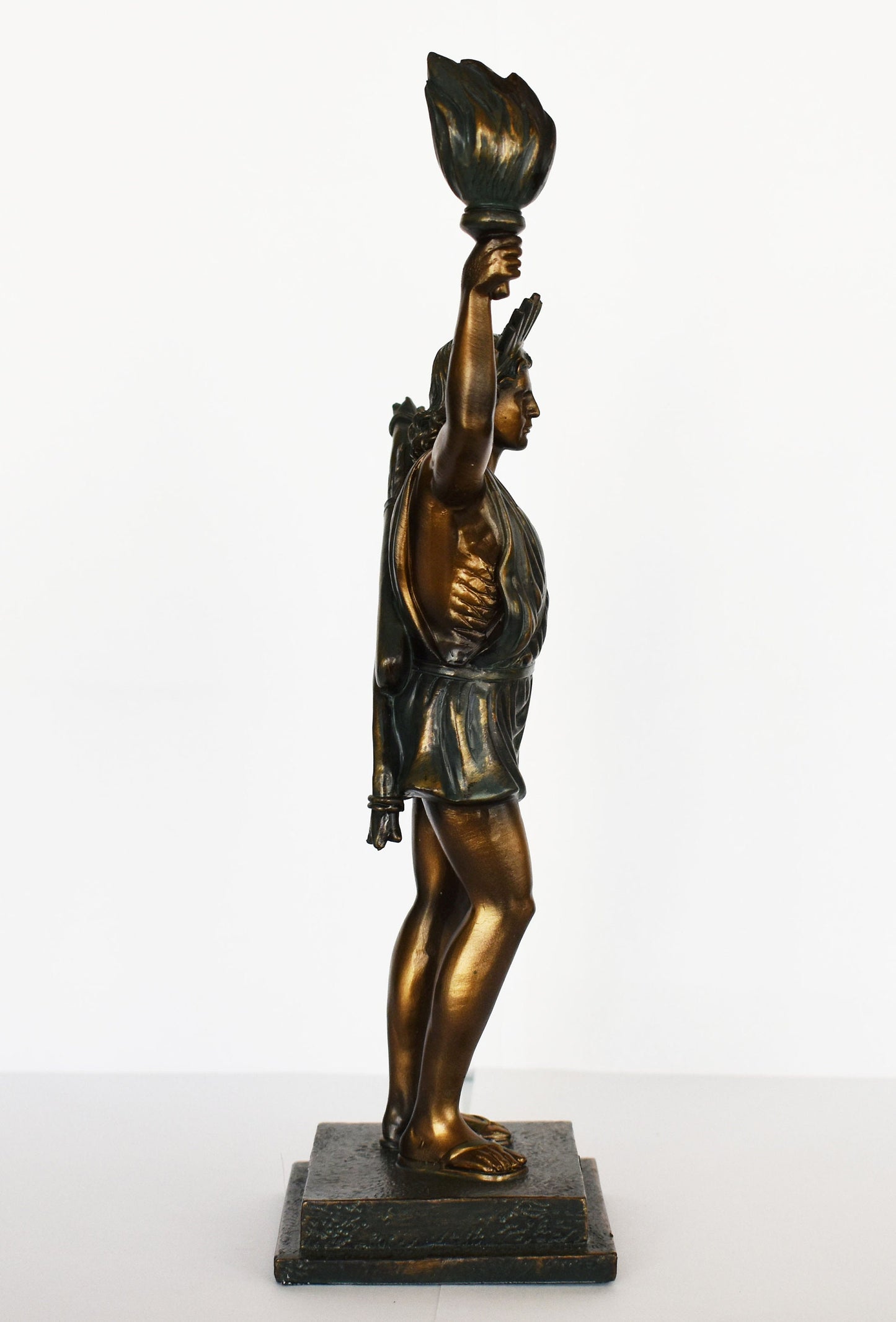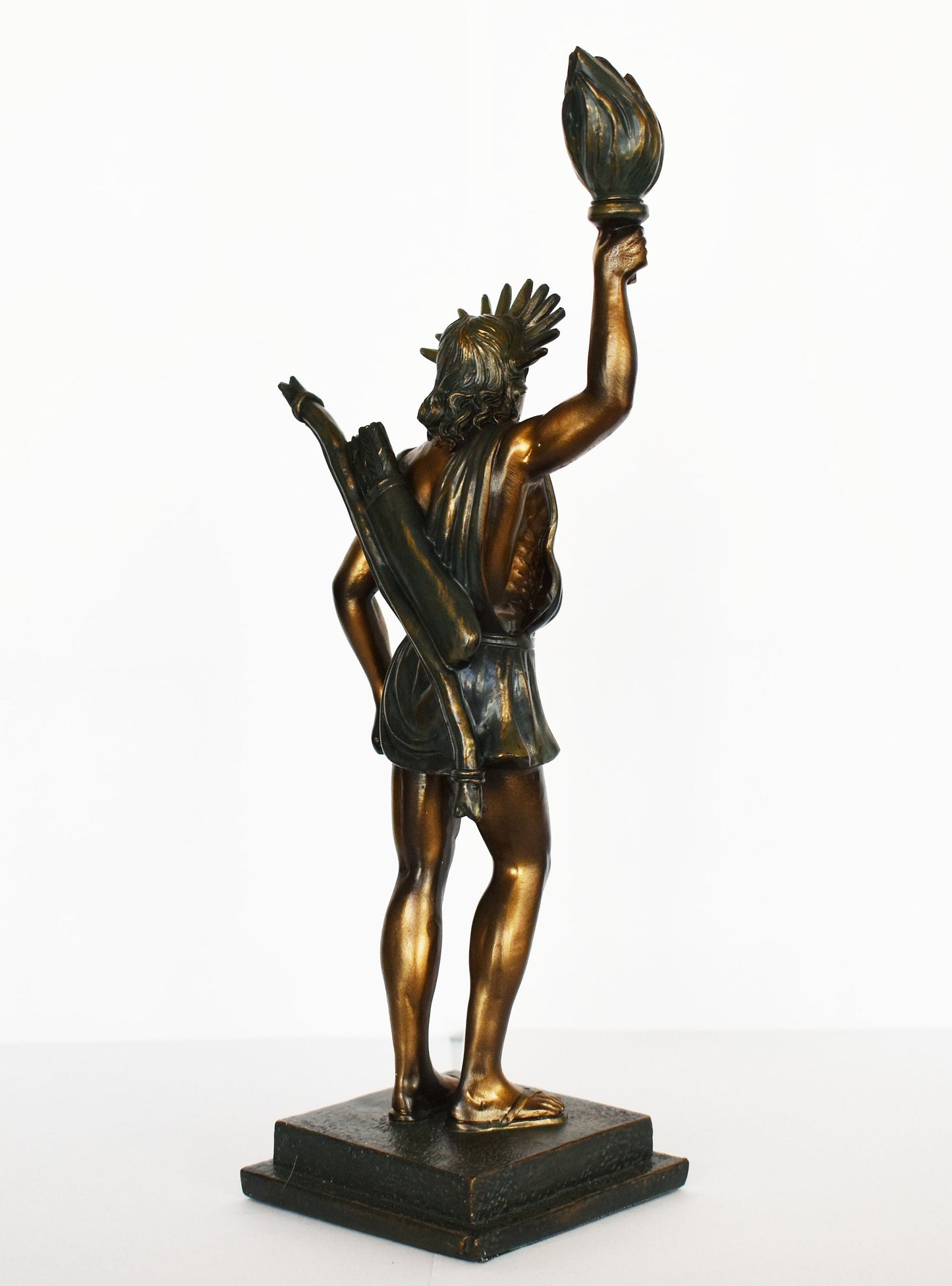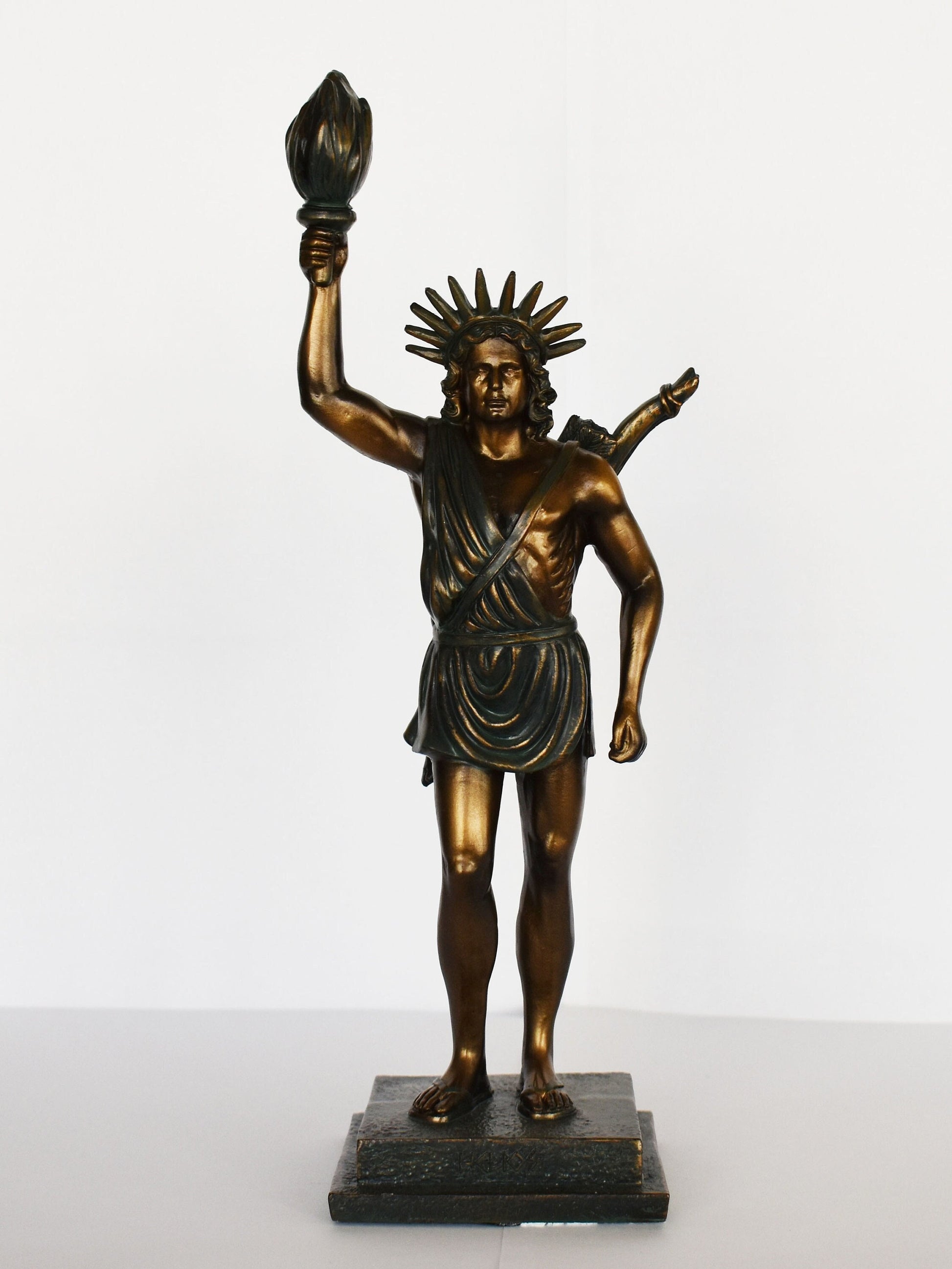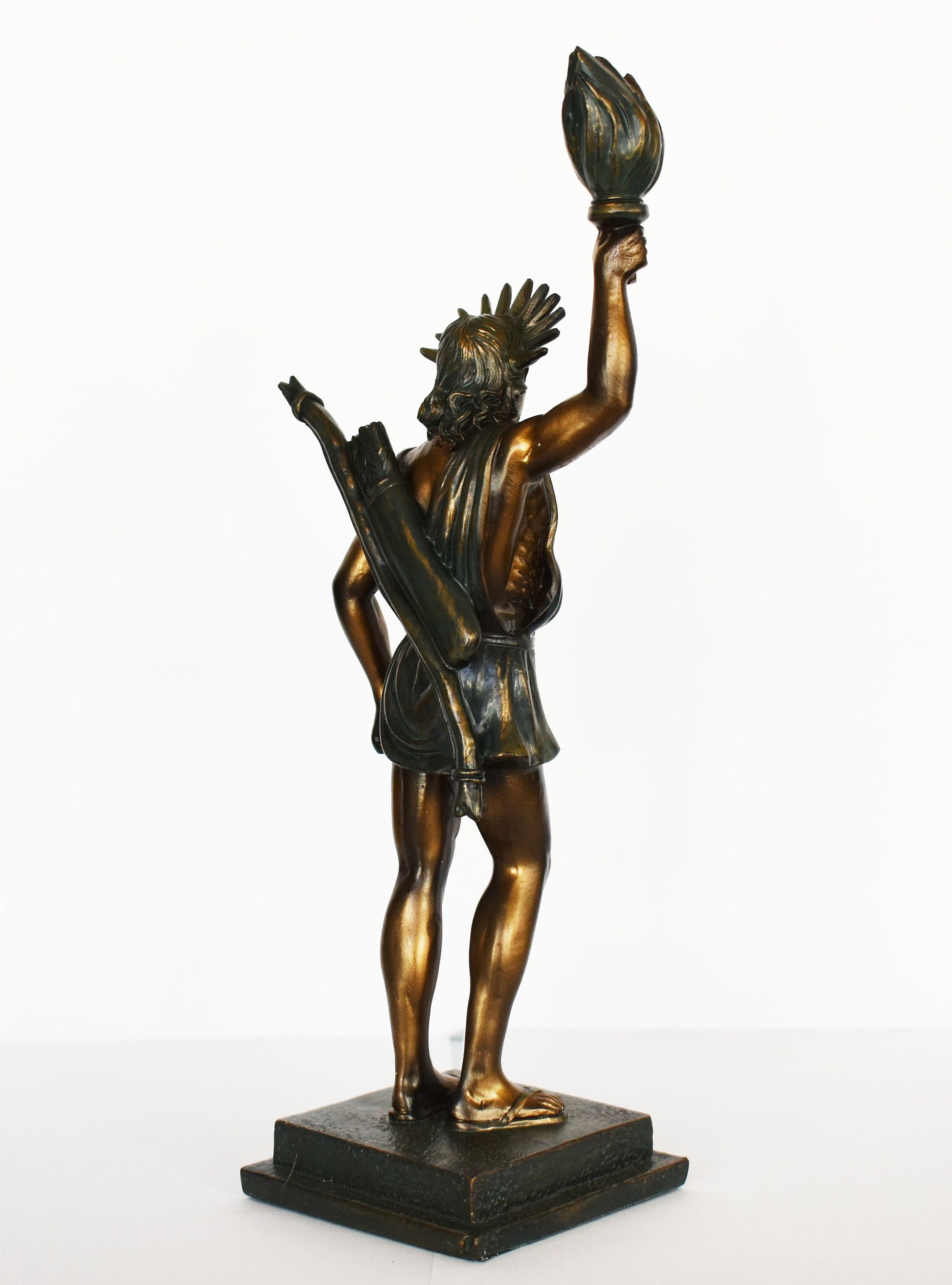Gallery Demeter
Helios Helius - Personification of the Sun in Ancient Greek Religion - Guardian of Oaths and also the God of Sight - Cold Cast polyResin
Helios Helius - Personification of the Sun in Ancient Greek Religion - Guardian of Oaths and also the God of Sight - Cold Cast polyResin
Regular price
€89,90 EUR
Regular price
Sale price
€89,90 EUR
Unit price
per
Tax included.
Shipping calculated at checkout.
Couldn't load pickup availability
Item Specifics
Details:
Condition: New
Material: Cold Cast Tin Resin
Height: 30 cm - 11,8 inches
Width: 10 cm - 3,9 inches
Length: 8,5 cm - 3,3 inches
Weight: 590 g
Diagoras of Rhodes, the son of Damagetus and great grandson of Damagetus, king of Ialissos, was the most famous boxer in antiquity. Pindar called him "huge". He is said to be impressive not only because of his size but because of his beauty. He was crowned as Olympic victor in wrestling in 464 B.C, in the 79th Olympiad. He was twice crowned winner in the Nemean games, four times in the Isthmian, numerous times in games held at his homeland Rhodes, in the Panathenaea, in Argos, in Lykaion, in Aegina, in Megara and elsewhere.
Diagoras was known for his unique boxing technique. He was called "euthymachos", because he never ducked or sidestepped a blow, but he kept his body erect during competition. He wanted an honest and decent victory, always followed the rules causing pride and admiration among his fans. Pindar composed an ode in his honour and his statue was placed at the Altis.
He was fortunate enough to watch his sons receive the Olympic wreath and be Olympic victors themselves -Damagetos in wrestling, Akousilaos and Dorieas both in the pankration- as well as his grandsons Eucles and Peisidorus. In 448 BC, during the 83rd Olympiad, Diagoras, on top of his victorious sons' shoulders was cheered by the spectators. This was the most glorious moment of his life, and realizing this, a Spartan spectator shouted at him that it would be better if he were to die at that instant, since there was nothing more glorious than to ascend to Mount Olympus and to the gods. Hearing this, Diagoras, still held by his sons, lowered his head and quietly died.
Helios figured prominently in the Greek Magical Papyri, a collection of hymns, rituals, and magic spells used from the 2nd century BC to the 5th century AD all around the Greco-Roman world. In these mostly fragmentary texts, Helios is credited with a broad domain, being regarded as the creator of life, the lord of the heavens and the cosmos, and the god of the sea. He is said to take the form of 12 animals representing each hour of the day, a motif also connected with the 12 signs of the zodiac.
